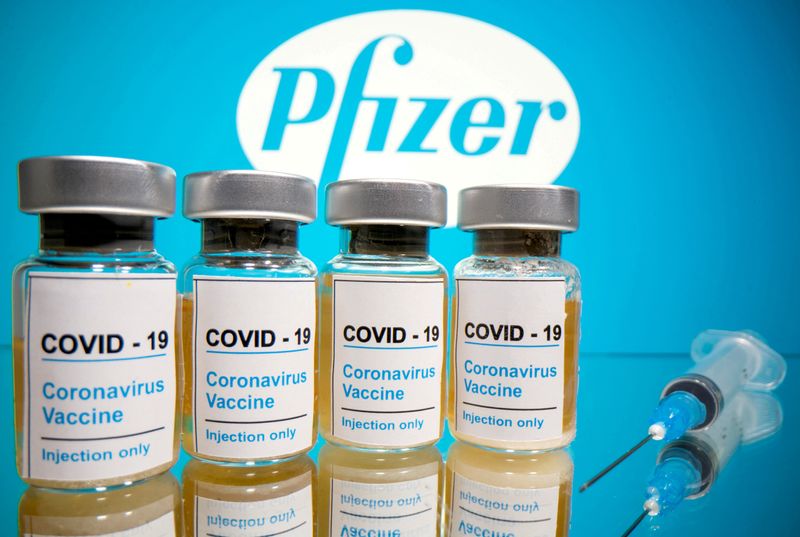TORONTO (Reuters) – Shipment of COVID-19 vaccines in Canada could start within 24 hours after Canadian health authorities approve the shots, a top official of pharmaceutical company BioNTech told CBC on Sunday, comparing it with the timeline achieved in Britain.
A vaccine jointly developed by Pfizer and its German partner BioNTech is expected to be the first to secure approval in Canada, though the country has signed supply deals with seven manufacturers.
Since Britain approved Pfizer’s COVID-19 vaccine last week, taking pole position in the global race to begin the most crucial mass inoculation programme in history, the focus has shifted to how quickly other countries could move and when the shots would be available to the public.
“If I used the UK as an example, we got approval at 1 a.m. in the morning, we approved the release of the vaccine and shipped it within 24 hours,” Sean Marett, chief business and chief commercial officer for BioNTech told Canadian Broadcasting Corp (CBC).
Health Canada is expected to approve the vaccine within “the next week”, a top official said on Thursday. Canada expects the first 6 million doses from Pfizer and Moderna Inc to arrive in the first quarter of 2021, enough for three million of Canada’s 38 million population.
The Pfizer and BioNTech contract with Canada requires the two drugmakers to distribute the vaccine, which needs to be kept at around -75 degrees Celsius. Marett said he does not see distribution of the vaccine as a challenge at that low temperature in countries as vast as Canada or the United States because it is not a new technology.
Marett said the transportation is “well mapped out.”
“Together with Pfizer, we’ve designed a storage box … in which the vaccine arrives. And you can use that as a minus 70 (degrees Celsius) freezer,” he said.
A second wave of COVID-19 is sweeping Canada, setting daily records for the number of new cases. So far, the country has reported 408,921 cases and 12,589 deaths. That has made vaccine roll-out a top priority for the government.
“This is a bit like the biological equivalent of a moon landing,” Marett said. But he added that from the UK experience, “we’ve seen things move pretty, pretty smoothly.”
(Reporting by Denny Thomas; Editing by Daniel Wallis)




















